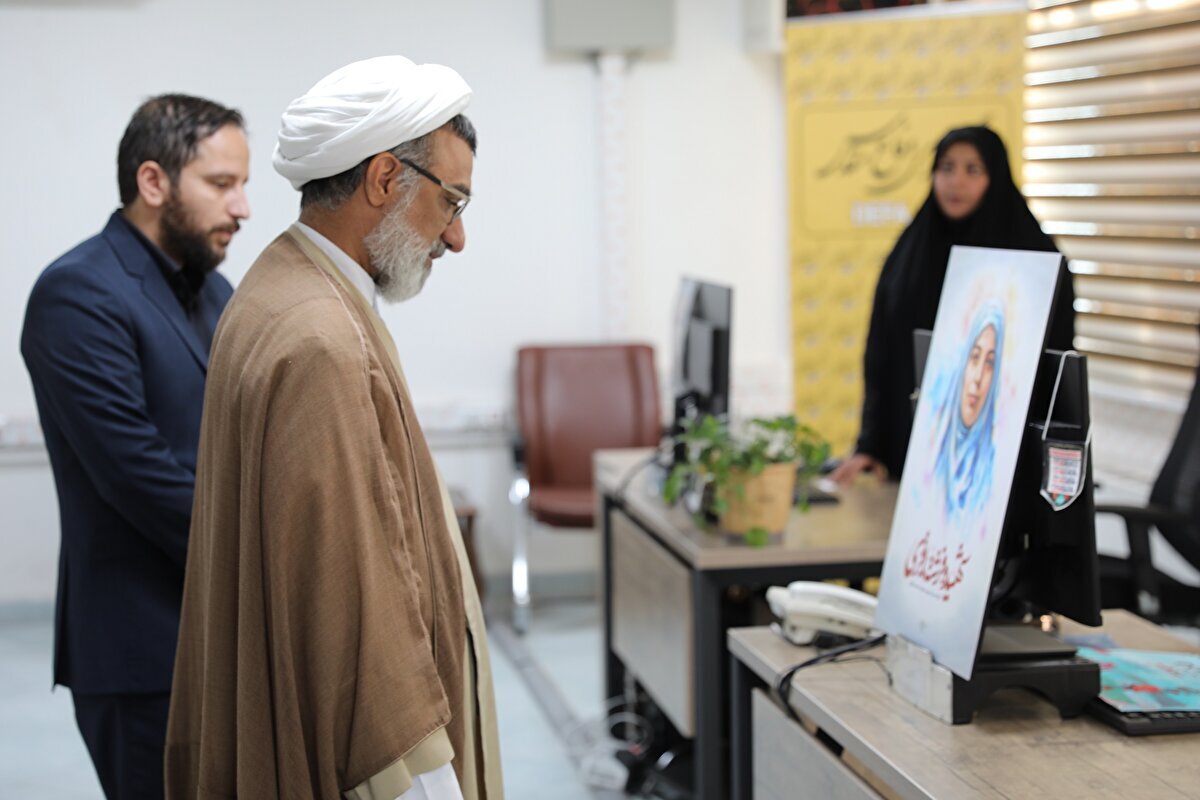Secretary of the Supreme Council of the Cultural Revolution Visited Defapress
TEHRAN (Defapress) - Today, July 29, the Eminence Abdul Hossein Khosropanah the Secretary of the Supreme Council of the Cultural Revolution, attended Defapress while paying respect to the noble status of the martyrs, especially the recent martyrs of the crimes of the Zionist regime, and congratulated and conveyed his condolences to the country's media community on the unjust martyrdom of the news agency's reporter, Fareshte Bagheri.

While visiting the editorial office of Defapress, the Eminence Khosropanah, in a gathering of journalists, considered the mission and responsibility of this news agency to be more special and important than before after the 12-day imposed war and stated: We are now facing a complex, combined and cognitive war from the enemy, in which the enemy is trying to achieve its sinister goals by casting doubt and creating narratives; Accordingly, the work of journalists and you, the cultural officers of the Holy Defense News Agency, in neutralizing the enemy's conspiracy is more difficult and important than processing the issues of the eight years of the Sacred Defense.
The Secretary of the Supreme Council of the Cultural Revolution continued: You, journalists, considering these complexities, must simultaneously take defensive and offensive cultural measures; that is, like military operations, conduct cultural and cognitive operations; in this process, you should not only respond to doubts, but also create doubts for the enemy and deal them a blow with attacks and offensive measures.
The Supreme Council for the Cultural Revolution operates as a legislative center among the government institutions and organizations of the Islamic Republic of Iran. This institution was established with the victory of the glorious Islamic Revolution and the establishment of the Islamic Republic by the decree of Imam Khomeini (Ra).
The Supreme Council for the Cultural Revolution is considered the supreme authority for policy-making, determining the policy, making decisions, coordinating and directing the country's cultural, educational, and research affairs within the framework of the general policies of the system, and its decisions and approvals are binding and have the force of law.
